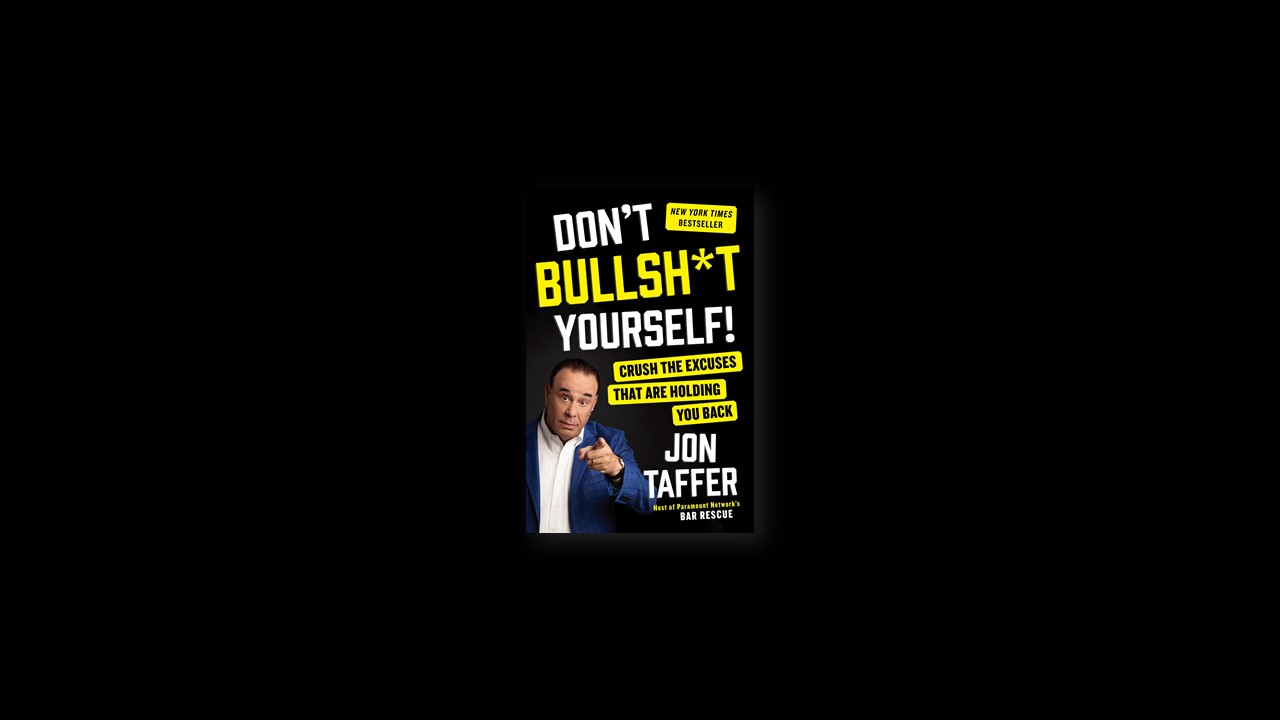EXCUSE #1: FEAR
“Inaction breeds doubt and fear. Action breeds confidence and courage. If you want to conquer fear, do not sit home and think about it. Go out and get busy.” —Dale Carnegie, American writer and lecturer
Excuses Based on Apprehension and Anxiety
Fear is part of human nature. Everyone experiences it. In fact, if someone was chasing you down a dark street, you’d probably be terrified. You’d run as fast as you could. In that sense, fear is a vital response to acute situations that present real danger. So it’s a delicate balance to acknowledge fear and then figure out how to act. Don’t use fear as an excuse to avoid situations that may present some risk or as an opportunity to cling to comfortable routines and familiar surroundings. Right now look at your perceived fears rationally to see if there is any real basis for you to allow them to control your choices and actions. Think about how you can use that very fear to propel you forward toward a goal, one step at a time.
. . . it’s time to face your fears and stop bullshitting yourself!
Here’s some news: You’re going to fail. You’re going to make mistakes. Both are part of the path to success in life and business—and they’re rarely fatal.
Whatever journey you’re on, it’s likely that you started out with big goals and a sense of purpose. You believed in yourself, your ideas, and your own competence when you started a business or took a job. You agreed to do the work. We have to get you back to that place—where you craved success instead of fearing failure.
EXCUSE #2: KNOWLEDGE
“All men who have turned out worth anything have had the chief hand in their own education.” —Walter Scott, Scottish novelist, playwright, and poet
Excuses Based on a Lack of Information or a False Sense of Superior Wisdom
The beliefs that there’s nothing new to learn, that certain knowledge is beneath your pay grade, and that you are not capable of learning new things (for whatever reason) are complete bullshit. Those excuses are really about you not taking full responsibility for your job or business.
You may think that if you learn something once, you don’t have to learn it again. That’s not exactly true. Consider the story of e-commerce giant Alibaba founder Jack Ma. At the age of twelve, Ma would wake up at five a.m. to walk or ride his bike to the main hotel in his city, Hangzhou, China, so he could practice the English he was learning in school with English-speaking tourists. He did this for nine straight years, also offering his services as a free tour guide to these visitors.
Ma realized that what he was learning in school was not the same as what he was learning from the foreigners he interacted with at the hotel. Sometimes what you are learning might not be the only way to know about something—and it might not even be true in the first place. The skills Ma gained by talking to native English speakers went a long way toward helping him learn about the world. They provided the basis for this poor Chinese kid, who could not even get hired at his local branch of KFC, to start a company that has helped him create a net worth of $21.9 billion—yes, that’s billion with a b.
Constant learning is not only about refreshing what you know. It’s very much about deepening understanding, making connections to form new ideas, and building your expertise. No one knows too much.
EXCUSE #3: TIME
“So what do we do? Anything. Something. So long as we just don’t sit there. If we screw it up, start over. Try something else. If we wait until we’ve satisfied all the uncertainties, it may be too late.” —Lee Iacocca, American automobile executive
Excuses Based on Lack of Time and a False Sense of Overwhelming Business
When we talk about equality in life, the one thing that we all have in common and in the same quantity is time.
Each day when we awaken, we all have twenty-four hours. We can use those hours wisely or we can make up excuses and use them poorly. Time used well bestows incredible benefits: it helps us make more money, forge important relationships, and break down adversarial ones; it creates camaraderie and allows us to bond with those whom we love and respect; it brings us joy and the chance to experience the world. Time used wisely offers these things and so many more.
Conversely, not appreciating time or understanding its value can lead to life’s greatest losses. It’s not that you don’t have enough time, it’s that you are not assessing and valuing your time properly. A 2014 study published in the Journal of Consumer Research shows that the natural inclination to categorize time is to put it in “present” and “future” boxes.
When we classify a deadline as a future goal, we put in the “someday” file and are more likely to neglect it. Those future time goals may nag at us, but we rarely get them done. When we term something as a “current” responsibility, we’re likely to start working on it right away. The problem is that many of the current tasks may be less important than the future tasks in terms of our long-term aspirations. For instance, getting a project done on deadline is important, but plotting out goals you need to reach over the next six months in order to get a promotion and a raise is crucial.
EXCUSE #4: CIRCUMSTANCES
“People are always blaming their circumstances for what they are. I don’t believe in circumstances. The people who get on in this world are the people who get up and look for the circumstances they want, and, if they can’t find them, make them.” —George Bernard Shaw, Irish playwright and critic
Excuses Based Around External Factors That Cannot Be Changed or Are Difficult to Change
unavoidable or unchangeable circumstances do not prevent you from accomplishing goals or succeeding.
Some excuse makers think blaming circumstances—any external factors that you didn’t choose but that you need to deal with—gives them a pass on facing their reality. If you can’t find a good janitor, the thinking goes, then you don’t have to worry about how clean your establishment is—you have no control over it anyway. You don’t have to take the necessary actions to improve what’s wrong, because the factors outside your control, such as the weather or the greater economic situation or the hiring pool, get in your way. Exigent circumstances may be challenging to deal with, but they aren’t impossible to address.
Take a Second Look
You have to see unchangeable circumstances not as obstacles that allow you to give up but as challenges and opportunities to try new ways of doing things.
You have to stop thinking you are where you used to be and deal with the here and now. That often requires you to take a second, and sometimes a third, look at your surroundings and any changes that are taking place.
EXCUSE #5: EGO
“Avoid having your ego so close to your position that when your position falls, your ego goes with it.” —Colin Powell, American statesman and retired four-star general
Excuses Based on Internal Beliefs and Bad Habits
We want immediate gratification, even if in the end it does not serve us. The ego wants to be both fed and shielded from harm. What we believe about ourselves as far as what we can and can’t do is often our biggest obstacle. It’s time for us to get over ourselves!
According to psychologist Anjhula Mya Singh Bais, Ph.D., “Making excuses is an effective way to either self-rationalize or manipulate an external situation or persons. Instead of dealing with old wounds and hurts from childhood and life, the ego subconsciously blocks out any information that triggers and does not support, bolster or promote its well-being.”
The problem is that when we let our egos get in the way of action we also distance ourselves from success, prosperity, progress, and realizing our full potential. In order to get rid of negative self-talk and an ego that doesn’t want you to get out of your comfort zone, you need to believe in an alternative opinion of yourself through action. Hillel the Elder, the leader of the Jewish Supreme Court in Israel in the early part of the first century C.E., said, “If I am not for myself, who will be for me?” And “If not now, when?” Words to live by.
EXCUSE #6: SCARCITY
“For those who do not live in fear of scarcity, life is unlimited.” —Jonathan Lockwood Huie, author, trainer, and personal coach
Excuses Based on Lack of Funds or Resources, or Not Having “Enough”
“I don’t have enough money or resources to succeed.” People often cry the no-cash blues when they’re trying to explain why they can’t improve their business or start a new one, or even afford to take a coveted trip or buy a new car. However their issues are usually caused by either a misallocation of their resources or not thinking correctly about their assets. I meet so many owners who do not have a clear picture of their financial status and assets that could be turned into cash if necessary.
Don’t sell tomorrow for today. Whether you are trying to start a business or working your tail off trying to make ends meet until your next office promotion, you can learn to use money wisely, save money, and make money work for you. If you need money for any reason—and this chapter focuses on those of you who would like to start a business either as a sideline or as a full-time gig—start by making better choices. You may have to sell your car and get a cheaper one. You may have to move to less-expensive digs. Costs can be cut without sacrificing quality. Debt can be paid off in reasonable ways, and innovation, product development, and marketing don’t have to cost much, or anything, in the right environments and with the right mind-set.
A FINAL WORD
You can be better today than you were yesterday. Excuses keep us from that because they are the common denominator of every failure. The way to be better every day is to eliminate excuses, and you do that through honesty, professional integrity, and humor.
A quick review of the most important and simple tips that can prevent you from falling back on the same old excuses that have been holding you back:
- Communicate with your clients, customers, and staff every day. Reach out, follow up, ask questions, and, most important, listen.
- Be present. That means you are working and living in the now. Are you available to talk to people? Are you focused on the tasks at hand, as you should be, or are you distracted by the minor and the unimportant?
- Take time every day, even if it’s thirty minutes, to think about your business, come up with or review ideas, and gain personal insight into how your life and business are going. The payoff for this small investment of time is huge.
- Educate yourself—knowledge is power. What can you learn today?
- Surround yourself with a good team of people who care about you, and do something every day that you can be proud of. Don’t let the process, or the ups and downs of trying, frustrate you. Focus on the end result because that’s going to be pretty wonderful. Don’t be derailed by one more excuse. Just fight it out and you will win.


